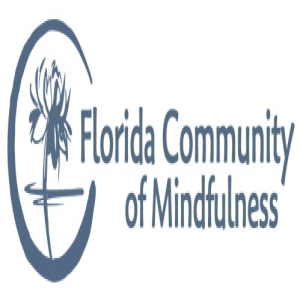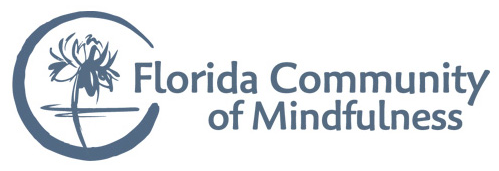Episodes

Monday Dec 09, 2019
The Lojong Slogans on Absolute Bodhicitta (2 of 2) (2019)
Monday Dec 09, 2019
Monday Dec 09, 2019

Monday Dec 09, 2019
The Lojong Slogans on Absolute Bodhicitta (1 of 2) (2019)
Monday Dec 09, 2019
Monday Dec 09, 2019

Monday Dec 09, 2019
Finding Your Edge with Lovingkindness Practice (2019)
Monday Dec 09, 2019
Monday Dec 09, 2019
March 2019
In this talk, Dharma teacher Fred Eppsteiner encourages participants to see where they have obstacles in extending the energy loving kindness toward others. While the practice of cultivating a loving heart is fairly straightforward, many of us can run into difficulties extending it toward other people, especially if we have historically had negative thoughts about a person, including ourselves. Fred explains how reflecting on other teachings that help us to understand ourselves, those around us, and why we relate to them the way we do can help break down these barriers and let the natural loving energy of the heart shine forth and shine on everyone equally.

Monday Dec 09, 2019
Monday Dec 09, 2019
Five Day Retreat | Jan 2019
In this four part series, Dharma Teacher Fred Eppsteiner elucidates key Buddhist teachings on how to work skillfully with unwholesome thinking which gives rise to much of our suffering, while cultivating wholesome thoughts that promote well-being and joy. Using primary Buddhist teachings, Fred explained that when we learn how to train our mind, our thinking can become a great support on this path of awakening, rather than an obstacle or something we need to get rid of. These teachings occurred during the 2019 Winter Retreat with the Florida Community of Mindfulness.

Monday Dec 09, 2019
Monday Dec 09, 2019
Five Day Retreat | Jan 2019
In this four part series, Dharma Teacher Fred Eppsteiner elucidates key Buddhist teachings on how to work skillfully with unwholesome thinking which gives rise to much of our suffering, while cultivating wholesome thoughts that promote well-being and joy. Using primary Buddhist teachings, Fred explained that when we learn how to train our mind, our thinking can become a great support on this path of awakening, rather than an obstacle or something we need to get rid of. These teachings occurred during the 2019 Winter Retreat with the Florida Community of Mindfulness.

Monday Dec 09, 2019
Monday Dec 09, 2019
Five Day Retreat | Jan 2019
In this four part series, Dharma Teacher Fred Eppsteiner elucidates key Buddhist teachings on how to work skillfully with unwholesome thinking which gives rise to much of our suffering, while cultivating wholesome thoughts that promote well-being and joy. Using primary Buddhist teachings, Fred explained that when we learn how to train our mind, our thinking can become a great support on this path of awakening, rather than an obstacle or something we need to get rid of. These teachings occurred during the 2019 Winter Retreat with the Florida Community of Mindfulness.

Monday Dec 09, 2019
Monday Dec 09, 2019
Five Day Retreat | Jan 2019
In this four part series, Dharma Teacher Fred Eppsteiner elucidates key Buddhist teachings on how to work skillfully with unwholesome thinking which gives rise to much of our suffering, while cultivating wholesome thoughts that promote well-being and joy. Using primary Buddhist teachings, Fred explained that when we learn how to train our mind, our thinking can become a great support on this path of awakening, rather than an obstacle or something we need to get rid of. These teachings occurred during the 2019 Winter Retreat with the Florida Community of Mindfulness.

Monday Dec 09, 2019
Monday Dec 09, 2019
February, 2019
In these talks, Dharma teacher Fred Eppsteiner explains the Buddhist teaching on the Six Realms of Existence and how we can use them as a sophisticated psychological model to help use understand what is happening in the world today. The six realms, which consist of The God Realm, Titan Realm, Human Realm, Animal Realm, Hungry Ghost Realm and the Hell Realms, can each be understood as suffering mind-states people find themselves in throughout their lives.
While some people are stuck in one of these states, many of us move between them throughout our lives. Understanding these realms, we can also look outward and l see that people in our lives, people in the world, all reside in one of these realms and their actions are motivated by the undercurrents that dominate each of these mind-states. This understanding can help us have compassion for people we encounter in this life while also motivating us to find another way to live.
Fred also touches on the teachers that show up in these various states of suffering to lead the way to more enlightened states of living.

Monday Dec 09, 2019
Monday Dec 09, 2019
February, 2019
In these talks, Dharma teacher Fred Eppsteiner explains the Buddhist teaching on the Six Realms of Existence and how we can use them as a sophisticated psychological model to help use understand what is happening in the world today. The six realms, which consist of The God Realm, Titan Realm, Human Realm, Animal Realm, Hungry Ghost Realm and the Hell Realms, can each be understood as suffering mind-states people find themselves in throughout their lives.
While some people are stuck in one of these states, many of us move between them throughout our lives. Understanding these realms, we can also look outward and l see that people in our lives, people in the world, all reside in one of these realms and their actions are motivated by the undercurrents that dominate each of these mind-states. This understanding can help us have compassion for people we encounter in this life while also motivating us to find another way to live.
Fred also touches on the teachers that show up in these various states of suffering to lead the way to more enlightened states of living.

Monday Dec 09, 2019
Dogen's Pith Teaching for Becoming a Buddha (2019)
Monday Dec 09, 2019
Monday Dec 09, 2019
January 12, 2019
In this talk, Dharma teacher Fred Eppsteiner comments on Zen Master Dogen's writings on becoming a Buddha in this lifetime. Fred elaborated on Dogen's teachings which say that the following simple practices will lead one to Buddhahood. The practices enumerated include to refrain from unwholesome acts, to not be attached to birth and death, and to be compassionate to all sentient beings. By practicing these fundamental teachings we all have the capacity to become Buddhas in this lifetime.

